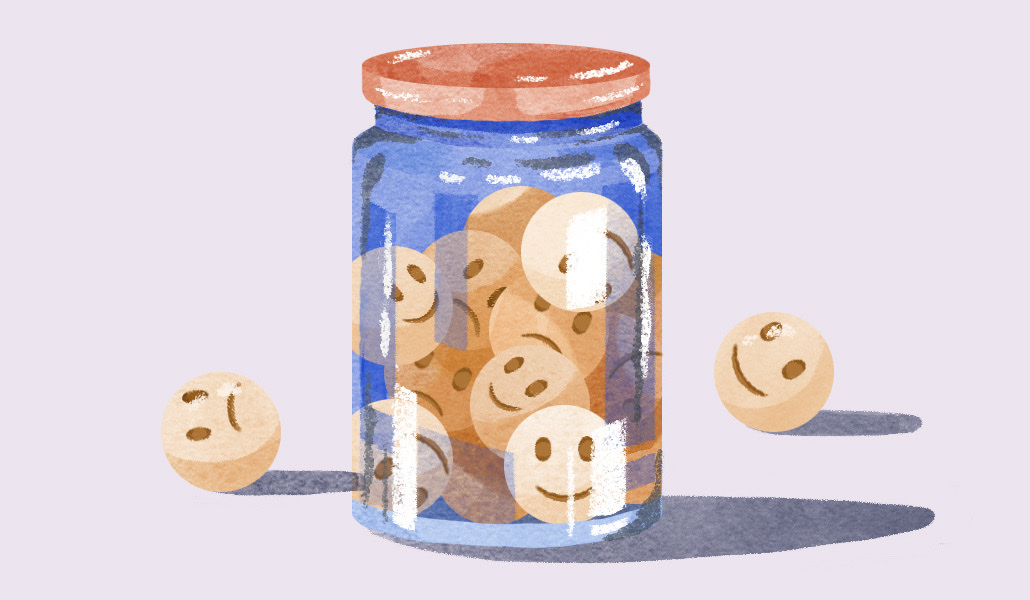WTF is toxic resiliency?

Being able to bounce back fast from challenging situations has long been a lauded characteristic in any employee and any workplace. But at what point does this sense of resilience start to become, well, toxic?
Since the Covid-19 pandemic, a range of workplace behaviors have become more closely scrutinized. For example, toxic positivity – a pressure to only show positive reactions and pretend nothing is wrong was flagged earlier this year, for the damaging consequences it can have in the workplace. Now, toxic resiliency is bubbling to the surface as another workplace experience that leaves employees feeling pressure to continuously grind for a company, in order to keep up – leaving them unhappy, burnt out and ready for change.
Resilience has been a word we’ve heard more and more since the Covid-19 pandemic. It’s all about the ability to adapt to difficult situations, such as stress, adversity or trauma and look for new solutions. We’ve all experienced this collectively through a global pandemic, and personally as we deal with things going on in our own lives. When this comes into the workplace, it expands people’s capacity to withstand or recover quickly from difficulties. But where do we draw the line?
What is toxic resiliency and why are we talking about it now?
Goodbye toxic positivity, hello toxic resiliency. There’s an underlying message that resilience is about always being able to cope and that it’s not OK to struggle. The reality, though, is that we all experience ups and downs.
“The term is just kind of changing with the times,” said Brianda Diaz de Leon, a licensed clinical social worker with therapy and psychiatry company Thriveworks, who says she sees a lot of her clients dealing with toxic resiliency. “After Covid and these traumas we are living through right now as a country, it’s really difficult to continue to be toxic-ly positive. Now we are just trying to persevere through all of this craziness that no human being should have to persevere through while continuing to meet the expectations of your 9-to-5 job. Some of us are even working two jobs or overtime.”
According to Deloitte’s 2023 Gen Z and Millennial survey, nearly half of respondents feel stressed or anxious all or most of the time. It’s been an ongoing concern since we changed how we think about work, in the wake of the pandemic. Yet, there are still pressures to constantly be evolving and working hard. The avalanche of layoffs this year, from companies both large and small, have only compounded that pressure. It can feel like it’s impossible to take your foot off the gas due to fear of being next for the chopping block.
Nicholette Leanza, licensed clinical counsellor at online therapy and psychiatry company LifeStance Health, describes toxic resiliency as “the pressure of having to bounce back repeatedly as you’re trying to navigate a stressful or noxious work environment and you don’t feel empowered to ask for help.” She says her clients have a personal tendency to push aside their needs to please others, so they are prime candidates to fall into toxic resilience at their jobs.
Alice Default, CEO of flexible assistant service Double and an anti-hustle advocate, says that similar to hustle culture, toxic resiliency is the idea that the only way to be successful is to give it 100% all of the time. “It’s not thinking and just executing,” said Default. “It’s very dangerous.”
It’s also more common for women in the workplace, said Julie Alvin, svp of content at media company theSkimm, because of things like the gender pay gap, glass ceiling and motherhood penalty. “Women continue to take on more non-promotable work than their male counterparts and a disproportionate amount of the mental load at work and at home,” said Alvin.
In theSkimm’s State of Women Report with The Harris Poll, they found that 71% of women said it’s their job to take on the mental load at work and at home and 74% said they’re always adjusting their lives to accommodate others, including coworkers.
What are the signs of toxic resiliency?
If you’re feeling like you have to endure stress and pressure or are terrified of voicing concerns through fear of being deemed not cut out for the role, then you are likely experiencing toxic resiliency. Diaz de Leon said that other key indicators are feelings of dread, anxiety and fatigue about work.
“All of us tend to get the Sunday scaries, but if that feeling is becoming even more extreme or dreadful, then we need to pay attention to that,” said Diaz de Leon.
One easy way to identify that you are experiencing toxic resiliency is if you feel like you are letting coworkers or bosses down if you don’t persevere. If your thoughts become aligned with a “suck it up” attitude, that could also be a sign.
“If you say ‘I just have to make it to this deadline, so I’m just going to power through,’ that is a sign,” said Diaz de Leon.
Default says that another sign is “when everything is constant and every single project is go, go, go, and it’s always something about ‘we just have to push.’”
“You have to expect some moments where you have to raise the pressure a bit, but when it’s constantly putting your teams or yourself under this level of stress, then I think it becomes very dangerous for you, your team and your mental health,” said Default.
Leanza says that it also quickly becomes a cycle where they time and time again feel like they can’t speak up for help because they’re afraid they’ll be seen as a complainer or not a team player.
How can you stop toxic resiliency?
Start by asking questions like: should I be pushing this hard? Does it make sense for me to be putting this much on the line? Is this the right thing to do? By asking yourself those questions, it can help to take a beat and identify if you’re experiencing toxic resiliency, stressed Default.
Anita Malster, a mental health expert at Blossom Mental Health Training, believes that too many employers place the onus on the individual to improve their own resilience to stressful situations.
“But if the workplace isn’t changing its environment, such as reducing staff pressure, addressing workplace bullying or addressing psychological safety, these tools [like therapy] will always be limited in their efficiency,” said Malster. “Employers should be championing the message that ‘it’s OK to say I need help,’ whether it’s because an individual needs extra time to work on a project, needs clarification on a subject matter, or has become overwhelmed or anxious.”
Meanwhile, employees should try to recognize when they’re having a bad day and communicate that so managers and bosses make a change. Psychological safety is a key component to be able to do this.
“A ‘put up and shut up’ culture will never lead to effective management or productive environments,” said Malster. “Employers have a statutory duty to create healthy workplaces, and a core part of that is understanding how to work in partnership with their staff to prevent these toxic environments.”
Leanza suggests starting by scheduling a one-on-one meeting with your supervisor to share specific examples of instances where you felt overwhelmed or pressured to take on more duties and couldn’t say no. From there, ideally, if the workplace has a good culture, they could work on a solution together. But it’s really up to the manager to set an example.
“It’s a lot about the companies that are creating a culture where toxic resiliency is OK,” said Default. “As a manager, speak up, say you’re overwhelmed, show it’s not a sign of failure.”


